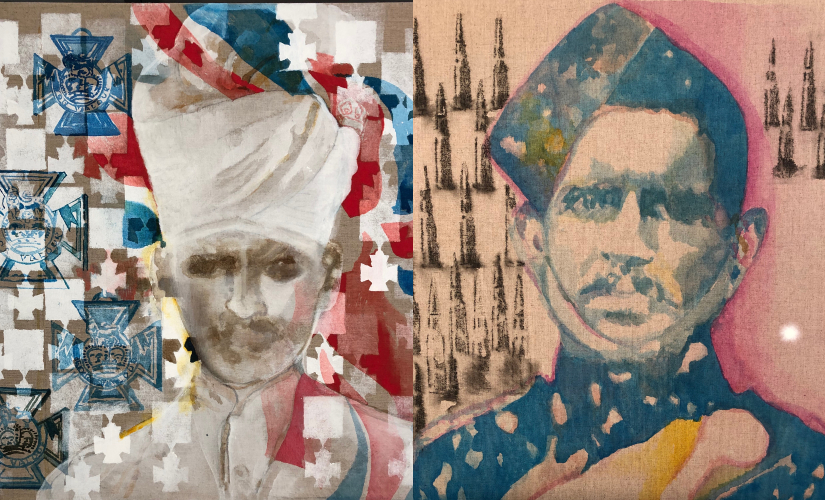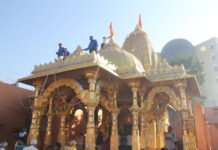MUMBAI: Poignant letters sent home by Indian soldiers during World War I and folk songs sung by families pained by war and separation have inspired artist Angeli Sowani’s exhibited paintings that give voice and image to the forgotten soldiers.
‘Medals and Bullets’, an exhibition of paintings inspired by the numerous letters, photographs and songs of these forgotten soldiers, was held at the Jehangir Art Gallery here March 19 to 24.
India, an erstwhile colony during World Wars I and II, partook in British defence with thousands of soldiers. While they won 9,200 gallantry awards and 11 Victoria Crosses in the first war, what remains less-remembered is the emotional dimension of lives lived and lost many miles from home.
“I have been wounded twice, and now this is the third time that I am being sent to the trenches… If Parmeshwar (God) allows I will escape, but the butcher does not let the goat escape,” read a letter dated April 5, 1915, by a soldier. It was sent from England to his home in Punjab.
The English translations of many of these letters have been put up for display, along with the paintings they inspire.
A February 1915 letter by a wounded Garhwali soldier to his elder brother explains different types of combat. “The fighting is of five kinds. First, there are the aeroplanes which move about dropping bombs and causing great havoc. They are like the great bird of Vishnu in the sky,” it read.
Its canvas titled The Great Bird of Vishnu shows a ferocious, mighty bird looking back.
“These were naive, largely illiterate young men, most of who had never ventured far beyond their own villages.
Paid an average of Rs 11 a month, these sepoys crossed the Kala Pani to far-away shores drawn both by economic need and with ideals of fighting for izzat (honour) and namak (salt) in their minds.
“The brutality of war in the trenches soon evaporated these illusions,” Sowani, who has studied at Ahmedabad’s National Institute of Design, wrote in her note on the exhibition.
A letter written home by one of the soldiers poignantly illustrates: “For God’s sake don’t come, don’t come, don’t come to this war in Europe.
Cannons, machine guns, rifles and bombs are going day and night, just like the rains in the month of savan (monsoon). Those who have escaped so far are like the few grains left uncooked in a pot.”
Many soldiers serving in the war were recruited from Punjab, causing a rich literature of war folk songs to be left behind and sung in their absence.
A folk song sung by the village women in Punjab goes: “Write my name amongst widows, you who is off to Basra/From being like a widow I would become blissfully married/If the war in Basra came to an end.” Basra is now in Iraq, where several war memorials lie even today.
Born to an English mother and Indian father, Sowani now lives and works in London. IANS






